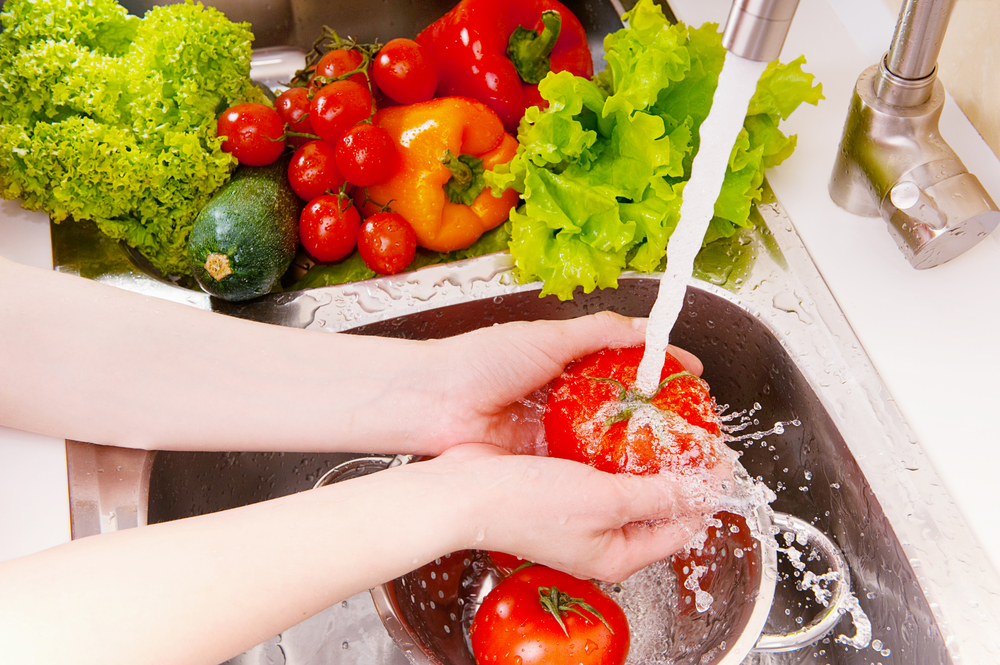Food hygiene is an important aspect of human life that is often not given much attention in this part of the world. Perhaps most people are oblivious to its importance, and the great damage to health it may cause.
According to World Health Organisation (WHO) statistics, an estimated 600 million people in the world fall ill after eating contaminated food, and 420,000 people die every year for the same reason.
More than 200 diseases, such as diarrhea and cancer, are spread by unsafe food, which may contain harmful bacteria, parasites, viruses, and other chemical substances.
Findings show that children are the most affected by the foodborne disease, as it kills 125,000 children every year. Foodborne diseases are caused by the eating of foods that contain infectious or toxic substances.
Food hygiene refers to the process of ensuring proper storage, preparation, cooking, washing, and preservation of food to ensure it is fit enough for human consumption and free of contamination.
Poor food hygiene leads to serious health issues, illness, and ultimately death sometimes. This and other reasons are why it is important for everyone to understand how they can practice good food hygiene and save themselves from hundreds of diseases caused by unsafe food by ensuring good food hygiene. In this article, we will be discussing some of the tips for ensuring good food hygiene.
Tips for Ensuring Good Food Hygiene
-
Wash hands thoroughly
In order to ensure food hygiene, you must wash your hands with soap and clean water before you start preparing food. Your hands should also be washed anytime you sneeze, touch your body parts, handle dirty dishes, touch pets, or visit the restroom.
-
Ensure cleaning of the cooking equipment
You must ensure that not only your hands are clean before you start preparing food, but also all the equipment such as knives, blenders, cutting boards, and spoons you will be using is thoroughly cleaned. This is because this equipment can harbor bacteria that can be transferred to the food if not properly cleaned.
-
Raw food should be separated from ready-to-eat food
By default, raw foods such as raw meat mostly contain bacteria, which may affect ready-to-eat food when not properly separated. In order to avoid cross-contamination as a result of dripping, especially when inside the fridge, raw, and ready-to-eat food should be kept apart.
-
Ensure the use of clean water
While preparing food, it is necessary to ensure that the water being used to prepare the food is clean. Food that is prepared with unclean and contaminated water may lead to diarrhea, stomach upset, and other health-related issues.
-
Adequate control of pests
If pests such as rodents, insects, and birds are not properly controlled in your cooking environment, they are capable of contaminating and spreading diseases to your food and environment. You should leave no stone untouched in ensuring proper control of pests in your surroundings.
-
Food should be cooked properly at the right temperature
Cooking food at the right temperature will help to eliminate bacteria that are capable of leading to illness or causing food poisoning. If your food is not properly cooked, you will be vulnerable to illness-causing bacteria. Undercooked food harbors bacteria and germs.
-
Wash food before cooking
It is important that you wash your food thoroughly before cooking to eliminate any forms of contamination. This is even more necessary when the food in question is fruits or vegetables that don’t require much cooking.
As much as we understand the importance of food to the survival of humankind, we need to be intentional about ensuring good food hygiene. We should at all times strive to ensure the food we consume is free from any form of foodborne disease and good enough for human consumption.









